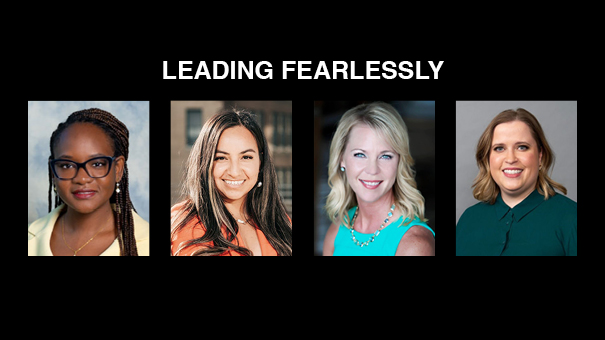Leading Fearlessly: Beyond the stereotype: women’s proven leadership excellence


Early in my career, I received a backhanded compliment that highlighted the pervasive stereotypes women face in the workplace. My leader praised my assertiveness, expressing surprise that a woman could possess such a quality. Ironically, at that point in my life, I was not sure how to respond to a double-edged statement like that, so I just thanked him for the feedback.
Women have long battled harmful stereotypes that undermine their abilities and potential. These stereotypes, often rooted in outdated beliefs, perpetuate the notion that women are less assertive, more emotional, less qualified and less committed to their careers than men. These biases contribute to discrimination in hiring, promotions and compensation, hindering women’s advancement.
A new Florida State University College of Business study challenges these stereotypes. It reveals that women leaders consistently outperform men in both task-oriented and relationship-focused leadership styles. This finding debunks the myth that women are less effective leaders than men. In fact, the study revealed that women leaders rated higher in those soft skills but also in effective assertive behaviors.
A similar study from Leadership Circle reports that female leaders show up more effectively than their male counterparts “across every management level and age level.”
The takeaway from this research? It’s important to recognize assumptions or unconscious biases that are not based in fact, as these affect hiring decisions, performance evaluations and opportunities for women to progress in their careers. Effective leaders should challenge stereotypes — across genders or other dimensions to — create a more equitable workplace for everyone.
I spoke with local leaders and asked them to comment on leadership behaviors they’ve seen women excel at despite pervasive gender stereotypes.

Nafissa Egbuonye, AVP growth and community engagement, Molina Healthcare
I have been fortunate to learn from women who have excelled in their careers. These women manage multiple responsibilities, both in their professional lives and at home. They are executive leaders who wear many hats — mothers, grandmothers, aunties, caretakers, mentors and more. These remarkable women have demonstrated their ability to be resourceful and resilient when juggling various priorities and handling crises.
Their success stems from a combination of emotional intelligence, collaborative approaches and strong communication skills. Although women are often stereotyped as overly emotional, studies have shown that they are actually more attuned to their own emotions and the emotions of others. This emotional intelligence enables them to “read the room” effectively, assess situations accurately and respond directly with empathy. Such skills foster a sense of trust, belonging and cooperation among team members, especially during challenging times. Trust creates an environment where teams can share diverse perspectives, leading to thorough analyses of situations and outcomes. This inclusive approach ensures that different angles are considered, ultimately contributing to better decision-making and outcomes.

Rocio Hermosillo, team leader, Team ELLLA
One leadership behavior I’ve often seen women excel at is providing difficult feedback with both clarity and care. In my own leadership journey, this took some work. When our team experienced rapid growth, I found myself hesitant to speak up, fearing I’d hurt feelings or create tension. However, this hesitation led to a moment where I realized the team was steering the ship instead of vice versa. It was a turning point; I knew I needed to address challenges directly and set clear expectations. Leaning into the difficult conversations and providing feedback with both honesty and empathy not only regained alignment within the team, but also strengthened trust and accountability. We are now developing a focused, strong and committed team.
Women are uniquely positioned to balance mind and heart. Women possess the ability to manage the formal parts of businesses and also guide decisions people make based on emotion. With opportunities and role models, I foresee that many more women will step into leadership positions in the future.

Georgia Van Gundy, deputy director, Iowa Workforce Development
To ensure that teams and individuals perform at their best — both for themselves and the organization — it’s essential that they are held accountable for their roles and the work needed to drive progress. Effective leaders must navigate difficult conversations, clearly communicate the organization’s vision and possess strong negotiation skills to cultivate a culture of accountability. Leaders who excel at holding people accountable are willing to help, strategic, strong communicators and genuinely invested in their employees’ success. The historical stereotype that women are not effective at holding others accountable or leading decisively is simply not true. We have these skills. In fact, throughout my career, I’ve seen that women leaders particularly excel at fostering accountability within their teams, while also promoting the collaboration and effectiveness required for long-term success. Accountability is not always easy for the leader or for the employee, but if both sides are vested in success, it is worth the work.

Rachel Woodhouse, executive director, Young Women’s Resource Center
I’ve worked with several excellent women leaders who were regarded as such in part because they blended personal and direct leadership styles. This earned them respect from their teams and trust from their peers. In my countless hours with these women, I observed them deploy skills that apparently weren’t typically expected from female leaders. These included direct communication unbuffered by emotive language or “stereotypical” female qualifiers (“This may be dumb, but …”); hard-fought expertise in their respective fields; calm and practiced readiness for confronting hard tasks, like giving critical performance feedback; bargaining for more favorable contract terms with vendors; and — possibly the hardest for professional women — saying “no.” Alone, these skills may have been interpreted as snide or aggressive, but in sum are undeniable talent. These women still serve as examples to emerging leaders who see their unapologetic aptitude and willingness to do hard things as guideposts to success.

